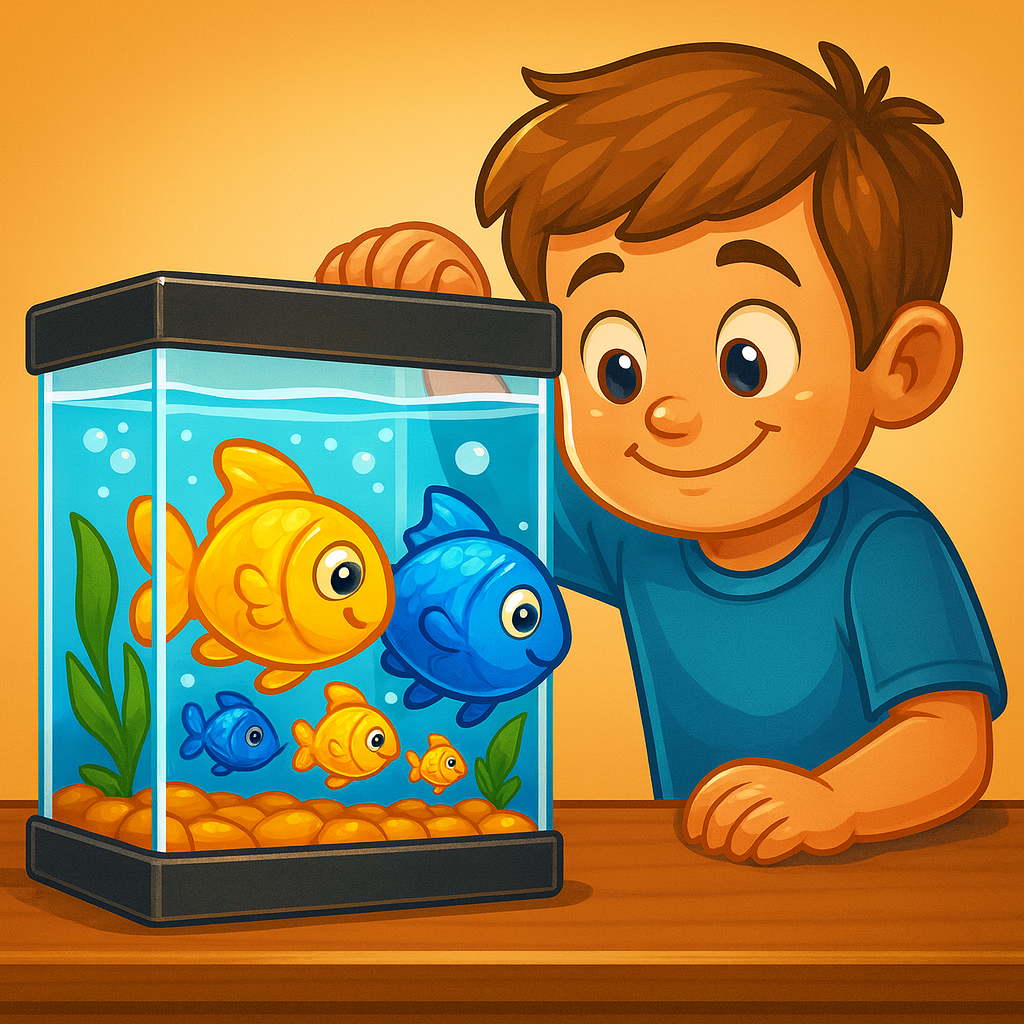How do I breed fish?
🐟 How to Breed Aquarium Fish
🍼 Livebearers (Guppy, Molly, Platy, Swordtail)
- 👫 Pairing: 1 male + 2–3 females
- 🌡 Temp: 75–80°F (24–27°C)
- 🌿 Setup: Lots of plants (Java moss, hornwort) or breeding boxes for fry to hide
- 🍤 Conditioning Food: Brine shrimp, bloodworms, high-protein flakes
- 🥚 Spawning: Internal fertilization → female gives birth every 4–6 weeks
- 👶 Fry Care: Remove adults (they eat babies); feed crushed flakes, baby brine shrimp
🥚 Egg Scatterers (Tetras, Barbs, Danios, Rasboras)
- 👫 Pairing: Groups (6+); separate sexes before breeding
- 🌡 Temp: 76–80°F (24–27°C)
- 🌿 Setup: Breeding tank with spawning mop, fine plants, or marbles on bottom
- 💧 Trigger: Large cool water change (simulate rainy season)
- 🥚 Spawning: Eggs scatter; parents eat them → remove adults after spawning
- 👶 Fry Care: Eggs hatch in 24–72 hrs; feed infusoria → baby brine shrimp
🏠 Cave / Substrate Spawners (Plecos, Catfish, Some Cichlids)
- 👫 Pairing: 1 male + 1 female (or harem for some cichlids)
- 🌡 Temp: 78–82°F (25–28°C) for plecos
- 🪨 Setup: Caves, clay tubes, flat rocks, driftwood
- 💧 Trigger: Strong flow, high oxygen, cooler water changes
- 🥚 Spawning: Female lays eggs in cave → male guards & fans them
- ⏳ Egg Care: Hatch in 5–10 days depending on species
- 👶 Fry Care: Once yolk sacs absorbed, feed zucchini, algae wafers, baby brine shrimp
👄 Mouthbrooders (African Cichlids, Some Catfish)
- 👫 Pairing: 1 male + 2–4 females (harem breeding)
- 🌡 Temp: 76–80°F (24–27°C)
- 🪨 Setup: Sandy bottom, rocks, caves (for territory & display)
- 💃 Courtship: Male digs pit or displays to female → she lays, then picks up eggs in mouth
- 🥚 Spawning: Female carries eggs/fry in mouth for 2–4 weeks
- 🍼 Care Options:
- Leave with mother until fry released
- Or “strip” eggs into egg tumbler for higher survival
- 👶 Fry Food: Crushed spirulina flakes, baby brine shrimp
🦋 Egg Layers with Parental Care (Angelfish, Discus, Apistogramma)
- 👫 Pairing: Bonded pair
- 🌡 Temp:
- Angelfish → 78–82°F (25–28°C)
- Discus → 82–86°F (28–30°C)
- 🌿 Setup: Flat rock, plant leaves, or glass panel for egg laying
- 💧 Trigger: Frequent warm water changes, soft acidic water
- 🥚 Spawning: Female lays rows of eggs → male fertilizes → both parents fan/guard eggs
- ⏳ Egg Care: Hatch in 2–4 days
- 👶 Fry Food:
- Angelfish → baby brine shrimp
- Discus → feed off parents’ slime coat first, then baby brine shrimp
🎣 Large Predators (Arowana, Peacock Bass, Stingrays)
🐉 Arowana
- 🌡 Temp: 77–82°F (25–28°C)
- 🪨 Spawning: Mouthbrooders (male incubates eggs for 6–8 weeks)
- 👶 Care: Often strip eggs into tumblers in commercial setups
🎣 Peacock Bass (Cichla spp.)
- 🌡 Temp: 78–84°F (25–29°C)
- 🏞 Setup: Very large tank/pond, sandy bottom with flat stones
- 🥚 Spawning: Lay eggs in pits, guard aggressively
- 👶 Fry Care: Feed live brine shrimp, chopped worms
🛸 Freshwater Stingrays
- 🌡 Temp: 78–82°F (25–28°C)
- 🪵 Setup: Very large, stable tank with fine sand
- 🥚 Spawning: Livebearers → males bite/hold female during mating → gestation 3–4 months
- 👶 Fry Care: Born fully formed; feed chopped earthworms, bloodworms, small shrimp
🛠 Universal Breeding Tips (with Icons)
- 🍤 Condition adults with protein-rich foods
- 💧 Simulate rainy season: frequent water changes, cooler/softer water
- 🌊 Increase oxygen & flow in breeding setups
- 🌱 Provide spawning surfaces (plants, caves, rocks, mops)
- 🍼 Have fry food ready: infusoria, baby brine shrimp, microworms
- 🚫 Separate fry from adults unless species provides parental care
✅ Summary:
The breeding process depends on the fish’s strategy: 🍼 livebearers, 🥚 egg scatterers, 🏠 cave spawners, 👄 mouthbrooders, 🦋 parental egg-layers, or 🎣 large exotics. By conditioning adults, mimicking nature, and protecting eggs/fry, you can reliably breed most aquarium fish.

Powered by Lightspeed
Display prices in:USD